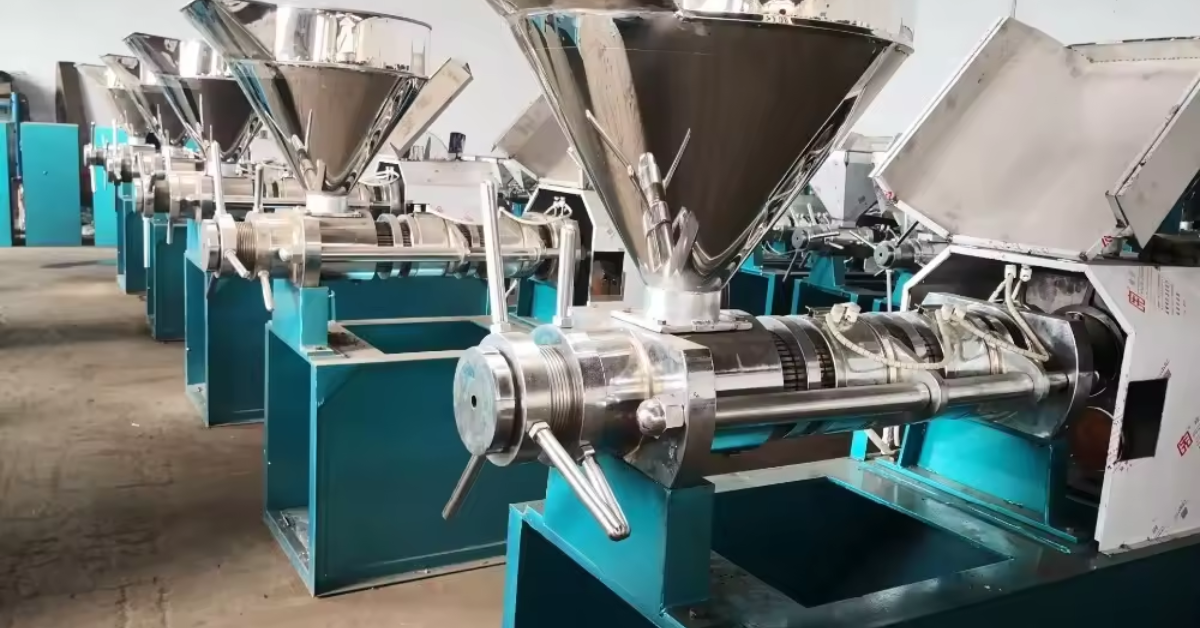Introduction to Oil Filter Machines;
Oil is a vital resource, extracted from various crops like sunflower seeds, soybeans, and olives. The process of extraction has come a long way over the years. At the heart of this process lies oil filter machines—devices that separate oil from its source with impressive efficiency.
As the demand for quality oils continues to rise, understanding different types of oil filter machines becomes crucial. Each type brings its unique advantages and challenges to the table, ultimately influencing how much yield you get from your raw materials. Whether you’re an aspiring entrepreneur looking to establish an oil production business or simply curious about how these machines work, exploring their impact on oil yield offers valuable insights into optimizing your operations. Let’s dive into the fascinating world of oil filtration technology and uncover what each type can do for you!
Types of Oil Filter Machines: Centrifuge, Press, and Vacuum
Oil filter machines are essential tools in the oil extraction process, as they play a crucial role in separating impurities from the extracted oil. Understanding the main oil filter machine types helps users choose the right model for efficient purification and filtration. There are various types of oil filter machines available on the market, each with its own unique features and benefits. In this section, we will delve deeper into three of the most commonly used types of oil filter machines: centrifuge, press, and vacuum.
Centrifuge Oil Filter Machine:
The centrifuge oil filter machine utilizes high-speed spinning to separate solid particles from the extracted oil. The machine works by continuously feeding the crude oil into a rotating drum at high speeds. As the drum spins, centrifugal force is generated, pushing the heavier impurities towards the outer edge while allowing clean oil to pass through and collect in a separate chamber.
One of the main advantages of using a centrifuge oil filter machine is its efficiency in removing impurities such as sediment and water from the extracted oil. This results in a higher quality yield with minimal wastage. However, this type of machine may have a higher initial cost compared to other types.
Press Oil Filter Machine:
The press oil filter machine uses mechanical pressure to extract impurities from the crude oil. It consists of multiple layers of filters that trap different sizes of particles as the crude oil passes through them under high pressure. The pressing action also helps to break down larger particles for more effective filtration.
One significant advantage of using a press oil filter machine is its versatility in handling different types of crops and oils. It can handle both small and large-scale operations efficiently and is relatively easy to maintain. However, it may require more frequent cleaning compared to other types due to its use of physical pressure for filtration.
Vacuum Oil Filter Machine:
As its name suggests, this type of machine uses vacuum technology for filtration purposes. The vacuum creates suction within an enclosed chamber containing multiple layers of filters through which purified oil passes through. The suction pulls out any impurities present in the oil, leaving behind clean and pure oil.
The vacuum oil filter machine is known for its ability to produce high-quality, clear, and odorless oil. It is also energy-efficient and has a relatively low maintenance cost. However, it may not be suitable for processing large quantities of oil at once. The type of oil filter machine used can have a significant impact on the yield and quality of extracted oil from common crops. Each type has its own advantages and disadvantages, so it is crucial to choose one that best suits your specific needs and requirements.
How does each type of machine affect the oil yield from common crops?
Centrifuge machines excel in separating oil from seeds and nuts through rapid spinning. This process effectively extracts higher yields, particularly from oily crops like sunflower and soybean. The centrifugal force pushes the oil out, resulting in a cleaner product with minimal residue. The Oil Yield of Common Crops varies widely depending on factors like seed variety, extraction method, and processing conditions.
Press machines rely on mechanical pressure to squeeze oil from plant materials. While they can yield significant amounts of oil, efficiency varies depending on the crop’s composition. High-fiber seeds may require multiple passes for optimal extraction. Vacuum filters operate by creating low pressure around the material being processed. This method helps retain flavor and nutrients while extracting oil. However, it generally produces lower yields compared to centrifuge or press methods.
Each machine type interacts differently with various crops’ characteristics, influencing not only the amount of oil extracted but also its quality and purity. Understanding these nuances is key for maximizing production efficiency.
Advantages and disadvantages of each type;
Centrifuge oil filter machines are known for their efficiency. They separate oil from solids quickly, which can lead to higher yields. However, they require a significant initial investment and might not be feasible for small operations.
Press machines offer simplicity and ease of use. With lower maintenance costs, they attract many small-scale farmers. Yet, the yield may not match that of centrifuges; pressing often leaves some oil in the cake. Vacuum filters excel at removing impurities without heat distortion. This method maintains flavor integrity but can be slower than other options. Additionally, vacuum systems may need more frequent upkeep due to intricate components.
Each machine type has unique traits that influence performance and cost-effectiveness. Understanding these aspects is crucial before making an investment decision in oil extraction technology.
Case studies: comparing oil yields using different machines on various crops
In a recent study, sunflower oil extraction was compared using centrifuge and press machines. The centrifuge yielded an impressive 48% more oil due to its ability to separate solids from liquids efficiently. Farmers noted that while the upfront costs of centrifuges were higher, the return on investment came quickly.
Another case focused on soybean oils extracted through vacuum filtration versus traditional methods. Vacuum filters showed a 30% increase in yield by preserving fragile oils’ quality during extraction. This method significantly reduced oxidation. Conversely, palm oil extraction with a hydraulic press illustrated some limitations. While it produced good yields, labor intensity and time constraints made it less appealing for large-scale operations compared to mechanical options.
These varying outcomes highlight how machine choice directly influences productivity based on crop type and processing goals. Each technology offers unique benefits tailored to specific needs in the agricultural landscape.
Factors to consider when choosing an oil filter machine for your needs;
When it comes to selecting the right oil filter machine for your needs, there are several important factors to consider. This decision can greatly impact the efficiency and yield of your oil production process, so it is crucial to carefully evaluate each factor before making a purchase.
1. Type of Oil Filter Machine:
The first consideration when choosing an oil filter machine is the type. There are various types available in the market, such as plate and frame filters, centrifugal filters, vacuum filters, and pressure leaf filters. Each type has its own advantages and disadvantages depending on your specific needs. For example, plate and frame filters are suitable for small-scale operations while centrifugal filters are better for larger scale productions.
2. Capacity:
Another important factor to consider is the capacity of the oil filter machine. The capacity refers to how much oil it can process at once or within a given time period. It is essential to choose a machine with a capacity that matches your production volume requirements.
3. Filtration Efficiency:
The filtration efficiency of an oil filter machine determines how well it can remove impurities from the extracted oil. A higher filtration efficiency means cleaner oil with fewer impurities, which leads to better quality output and longer shelf life of the product.
4. Maintenance Needs:
Maintenance is an inevitable part of owning any machinery, including an oil filter machine. Before making a purchase decision, be sure to research about the maintenance requirements of different machines and choose one that aligns with your budget and capabilities.
5. Cost:
Cost is always a significant consideration when purchasing any equipment or machinery for business purposes. However, keep in mind that opting for cheaper options may not always be cost-effective in the long run if they require frequent repairs or replacements due to poor quality or inadequate features.
6.Flexibility:
Some machines are designed specifically for certain crops or oils while others have more versatility in terms of what they can process efficiently without compromising on quality. If you plan to expand your production in the future, it is wise to choose a machine that offers flexibility and can handle different crops or oils.
Choosing an oil filter machine requires careful evaluation of various factors such as type, capacity, filtration efficiency, maintenance needs, cost, flexibility and brand reputation. By taking these factors into consideration and making an informed decision based on your specific needs and budget, you can ensure efficient oil production with high-quality output.
Maintenance and upkeep of oil filter machines;
Regular maintenance is crucial for oil filter machines. It ensures optimal performance and longevity. Start by checking the machine’s components for wear and tear. Cleaning is essential to prevent buildup that can affect efficiency. Residue can clog filters, leading to decreased oil yield. Make it a habit to inspect and replace filters as needed.
Lubrication of moving parts reduces friction, preventing breakdowns. Keep an eye on bearings and seals; they are often the first places to show signs of wear.Calibrate your machine regularly for accuracy in processing yields. This step helps maintain consistency in production quality.
Finally, keep documentation of all maintenance activities. Tracking repairs or replacements will help diagnose issues faster down the line, keeping your operations running smoothly without unexpected interruptions.
Conclusion:
Choosing the right oil filter machine is essential for maximizing oil yield from various crops. Each type—centrifuge, press, and vacuum—offers distinct advantages that can influence your production process. When selecting a machine, consider factors such as crop type, desired oil quality, and scale of operation.
Maintenance plays a critical role in ensuring efficiency and longevity. Regular upkeep not only prolongs the life of the equipment but also helps maintain optimal performance levels. As technology continues to evolve, advancements in oil filter machines promise improved yields and more efficient processes. Staying informed about these developments can help you make better choices for your operations. Ultimately, understanding the specific needs of your business will guide you toward an oil filter machine that meets both current demands and future aspirations. With careful consideration and planning, achieving high-quality oil yields becomes a tangible goal worth pursuing.
Stay in touch to get more updates & alerts on Picnob! Thank you



